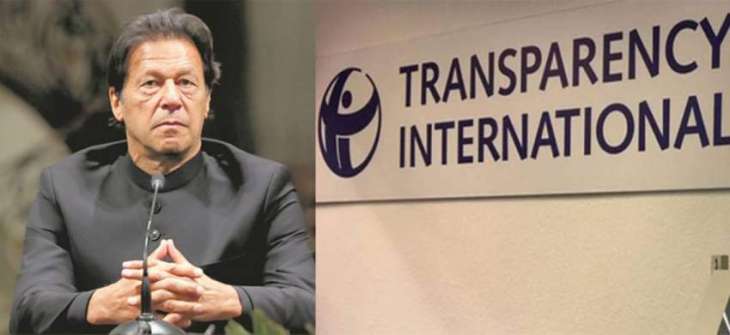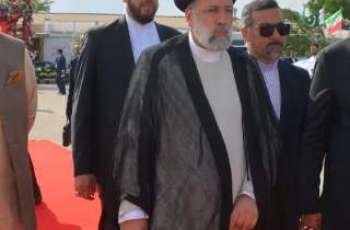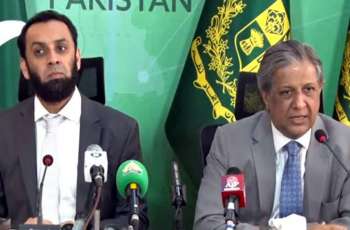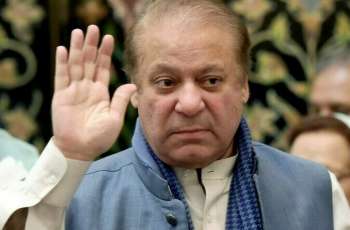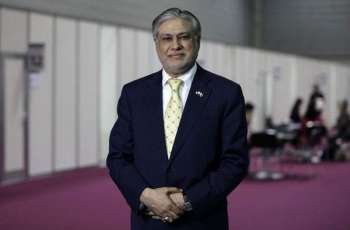The survey conducted by Transparency International reveals that the majority of Pakistanis (66.8%) believes that the present government’s accountability drive is partial
ISLAMABAD: (UrduPoint/Pakistan Point News-Dec 8th, 2021) Transparency International (TI) on Wednesday that shared the details of its survey, revealing that the majority of Pakistanis (66.8%) believes that the present government’s accountability drive is partial.
Transparency International report said that the National Corruption Perception Survey 2021 has revealed that police remain the most corrupt sector, the judiciary was seen as second most corrupt, tendering and contracting the third most corrupt while health has climbed to become the fourth most corrupt since the last NCPS 2011. According to the Judicial Statistics of Pakistan 2020 report by the National Judicial (Policy Making) Committee, there are 46,698 cases pending in the Supreme Court and 1,772,990 cases pending in the District Judiciary.
It said that a vast majority (85.9%) of people consider the Federal government’s self-accountability to be unsatisfactory. The survey revealed that Pakistanis continued to believe that the corruption in the government sector is high. The police (41.4%), judiciary (17.4%) and contracting/tendering (10.3%) are the three most corrupt sectors according to the survey, while contracts of roads (59.8%), cleanliness and garbage collection (13.8%), access to water (13.3%) and the drainage system (13.1%) are top the list of public services for which people have to pay bribes to get access to.
It also unveiled that the three most important causes of corruption, according to the NCPS 2021, are weak accountability (51.9%), the greed of powerful people (29.3%) and low salaries (18.8%).
As measures to reduce corruption, 40.1% of Pakistanis say an increase in/stringent punishments for corruption cases, 34.6% Pakistanis say accountability of public officers by expediting NAB’s handling of corruption cases, and 25.3% say a complete ban on those convicted of corruption from holding public office, are key to combat corruption in Pakistan.
The survey also sheds light on local governments and how their presence could have helped Pakistan establish a firmer grip on the situation arising out of Covid-19. It reported that a large number (47.8%) of Pakistanis consider that if local government elected representatives were in place, Covid-19 public awareness campaigns could have been launched in a more effective manner.
A large proportion of Pakistanis (72.8%) believe that public sector corruption at the grassroots levels has increased due to the absence of local government. A total of 89.1% of Pakistanis say that they did not pay any bribe to any government official during the federal government’s Covid-19 relief efforts for deserving citizens.
A significant proportion of the population (81.4%) has denied that it willingly pays bribes and instead there was a clear perception that bribes are extorted from the public through tactics such as inaction or delay in the provision of public services.
Compared to the three most recent federal governments, the majority of Pakistanis (92.9%) consider inflation and the price hike to be the highest during the current PTI government (2018-2021), compared to 4.6 % who thought the same for the PML-N government (2013-2018) and 2.5% of the PPP government (2008-2013).
This coincides with 85.9% Pakistanis who say that their income levels have been squeezed and have decreased during the last three years.
The main reasons citizens blame for rising inflation and unemployment are: government incompetence (50.6%), corruption (23.3%), undue Interference of politicians in government affairs (9.6%) and lack of implementation of policies (16.6%).
The majority of Pakistanis (66.8%) believes that the present government’s accountability drive is partia
